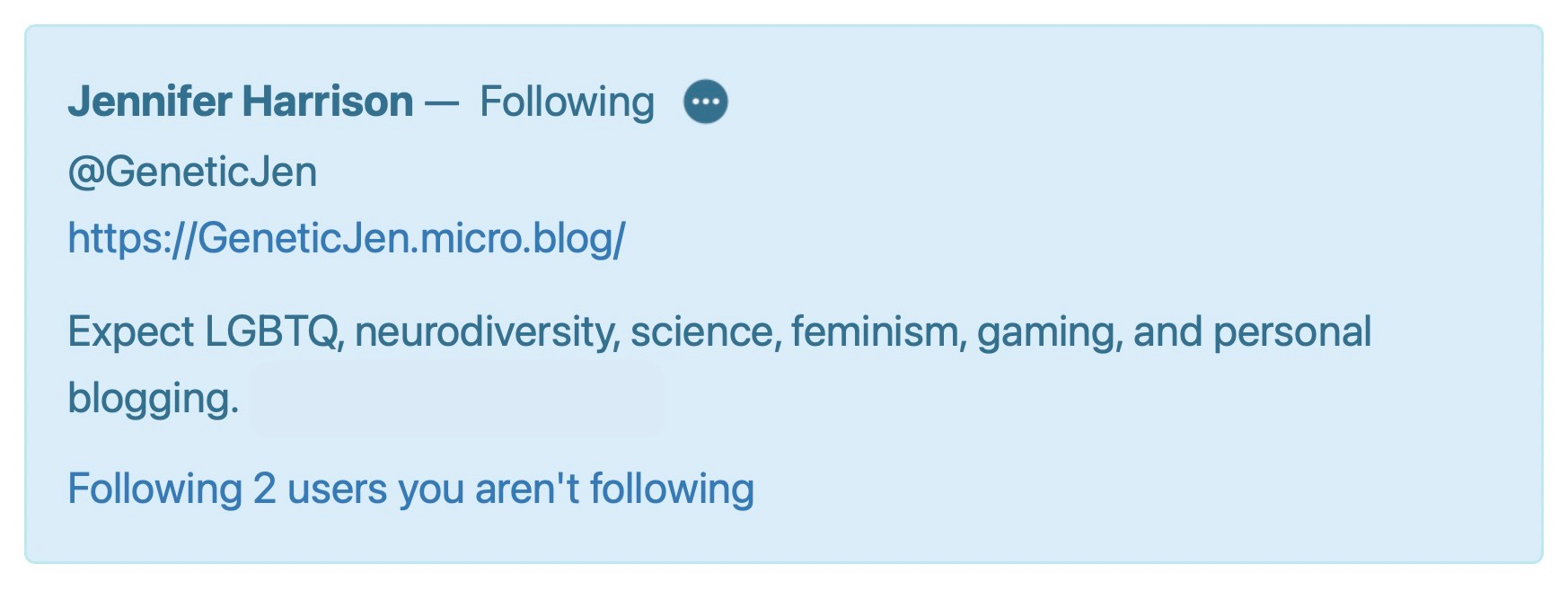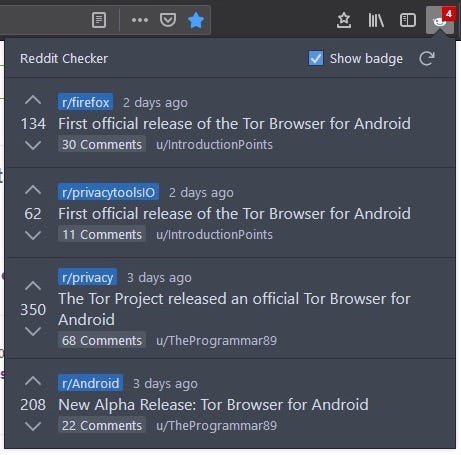Introducing a network for thoughtful conversations
The quality of conversations on the Internet is terrible. Most platforms like Twitter, Facebook, Instagram, Reddit, etc. optimize for engagement as their key metric. This spawns and rewards behavior that leads to bragging of gameable metrics such as likes and followers, self-feeding thought bubbles, knee-jerk reactions, “if you’re not on our side, you’re on their side” mentality, and thought policing even by people who think they’re fighting for a good cause. Today’s Internet doesn’t incentivize healthy conversations.
This isn’t a novel observation. Nevertheless, the problem seems to be getting worse by the day. For a while now, I’ve been honing an idea of a new kind of network that I believe is a solution to the problem. A tool, specifically, that facilitates advancing conversations. I’m calling it LinkTalk.

LinkTalk is a platform where you can only post links. You can’t caption your post or write any introductory text. None. To respond to a link, you post another link. This is how we can have debates, rebuttals, curated streams of links on topics, and more. That’s it, that’s the core idea. Converse in links.
While I’m primarily thinking of links as in blog posts, articles, and research papers, other mediums of disseminating information such as podcasts and videos are also welcome.
Let me address the obvious question upfront: If people can’t write any text in posts, how will others know what to expect from the shared link?
You must have noticed when you share a link anywhere, most networks and messaging apps autogenerate a link preview. This includes a title, often a subtitle or lead text, and a thumbnail. That is sufficient information when a user views a link on LinkTalk, with the title being the key. The goal is to make people click links and consume them, not look for (often inaccurate) TLDRs in the comments section. Besides, Twitter and other networks already exist so there’s little point in not breaking some notions to test new waters.

Now come the juicy bits. What follows is my initial ideation of the specific mechanics and incentive structure of LinkTalk.
Legit links
How do we get people to post legitimate links on the network and not just links to tweets, GIFs, or spam in general?
I have no technical knowledge of how such things work at an implementation level but three things come to my mind that could act as a baseline posting filter.
- The system will check if the link being submitted has an associated RSS feed, particularly one with an explicit title field instead of just a date, and only then allow posting it. Blogs, many research journals, YouTube channels, and podcasts have RSS feeds to aid reading and distribution, whereas things like tweets, Instagram photos, and LinkedIn posts don’t. So that’s a natively available filter on the web for us to utilize.
- Of course, an RSS filter would catch only some unwanted links. After all, RSS is a versatile beast also used for things like tracking changes in Wikipedia pages. So the next step would be to maintain a blacklist that disallows posting links from unwanted websites in the context of the network.
- While we’re on this topic, let’s also disallow URL shortening services. Users should be able to clearly see which website they’re heading to. If needed, the URL un-shortening can be baked into the service so users don’t need to care for it.
Needless to say, it’d require quite a bit of work to even make and maintain such a blacklist but my hope is that these filters block a reasonable amount of spam. But since I have no knowledge of these things at a technical level, including how to handle bot problems, an expert needs to chime in here.
Reactions
People consuming links on LinkTalk need to be able to react in some way, typically to weight on or against a link’s quality. I imagine implementing this differently than the usual mechanisms of likes, retweets or shares. Each link could show the following buttons to vote on:
- Good link
- Bad link
- Disproved
- It’s complicated
People can vote links as good and bad the usual way—just select your reaction. But when a user selects any of the other two reactions, they are required to post a reply link. So when you click “Disproved” on a link someone posted, you need to reply with a link that you think proves it wrong. If you think a link has many gray areas or caveats, use “It’s complicated” to reply with a link that justifies your reaction.
The benefit of such a mechanism is clear. For every user that strongly disagrees with a post or thinks they know more about a matter, the system helps others ride along by having the relevant information available by design.
Displaying reactions
An interesting divergence in displaying reactions on LinkTalk from other networks is it wouldn’t show how many and which reactions a link got until you vote yourself. This is similar to how polls work. Let’s accept it, most people on social networks upvote content only because 100, 1,000 or 50,000 people already liked it. This is the self-feeding bubble we want to break by having people realize their honest opinion first.
Also, a post view on LinkTalk will always show vote count for each reaction separately. This is to avoid giving the impression that a cumulative score of say, +50, somehow makes the thing purely positive. This will help maintain some nuance, which is the easiest thing to get lost on “modern” networks.
Following, not followers
The network effect is real. An account with over 10,000 followers has their content better heard overall than one with 500, no matter what they’re saying. People also tend to follow people who have a large following over those who don’t—another vicious loop. So on LinkTalk, each profile would only show who they’re following, not who or how many are following them. This should incentivize people to find more people they actually want to follow, and not get hung up on a popularity contest. This concept is borrowed from Micro.blog, a platform with some neat ideas.

Replies
You can reply to a posted link with another on LinkTalk, even if you don’t react to said link. Each reply post has all the same properties as a regular one so it can be reacted and replied to the same way. Conversations can thus happen in multiple threads to as many levels as the replies go. The idea with replies on the network is that you either find a good link to reply with or write one of your own, which is where the next feature comes in.
Reply by writing a blog post
When you hit reply on LinkTalk, other than allowing you to post a link, you can initiate a new blog post via a button. This will open a new post editor on your blog, which you may have connected to via your account settings or during onboarding. If multiple blogs are connected, you can choose which one to reply with.
I think this is good for two reasons. First, writing a blog post requires a more nuanced mindset than impulsively replying on traditional social platforms. Second, even if the blog post’s response length is a mere 100-200 words, it’s fine. Since the response will go as a post on your blog, you’ll be more mindful of what you write for your readers, readers which are more invested in you than a passive social media follower.
I think this feature is a good way to incentivize the largely lost culture of blogging while keeping conversation quality in check. With this feature, LinkTalk also incentivizes you to own your thoughts on the Internet via your blog, unlike the pseudo-ownership that social networks provide.
Besides, it has never been easier to start and write a blog.
Extending to the Web
LinkTalk seems relatively simple in terms of the number of things it needs to host a conversation. So why even limit it to a website? There are two ways I imagine sensibly extending LinkTalk.
If site owners want, the comments section on webpages could host a tab for LinkTalk integration. People can then react and reply directly from a webpage. This tab could also show any existing replies to the link on the network. To integrate LinkTalk into a website, a mechanism similar to commenting systems like Disqus could be used.
A browser extension, similar to Reddit Checker, when clicked could show a list of LinkTalk submissions of the webpage you’re visiting, either as a shared post or a reply. It could also allow you to share the link on the network yourself or reply to it without leaving the page.

A LinkTalk browser extension could display a list of who submitted the webpage link you’re on, similar to the Reddit Checker extension shown here.
With these two extensions of LinkTalk, having conversations and finding them can happen organically on the open web, and not inside application silos. Unlike other networks, there’s not much incentive here to keep you on the network’s website. If anything, the more of the open web you explore, the more likely you are to add value to the network. So tools like these actually align the incentive structure more tightly to the core idea—better quality conversations on the Internet.
I have considered making LinkTalk federated so that people can spin their own, independent instances rather than have a centralized one like Twitter. But seeing the unfortunately subpar user experience of Mastodon, and its moderation issues, I’m not convinced about federation being a net positive in this context. Said that, I’m no expert and could be wrong.
For writers, creators and publishers
Having many keen readers on a platform that incentivizes thoughtful conversations can be a great opportunity for writers, creators and publishers to find more people interested in their work, and also ones more likely to stick around. But people who spend most of their time creating often do not, or cannot, spend enough time sharing and marketing their work. This is why LinkTalk will offer an auto-share option after you connect your blog. When enabled, every new blog post you publish will get automatically shared to your profile feed on the network, and thus appear in your followers’ non-algorithmic feeds.
However, automated sharing can easily turn a network into a spam factory, much like all of social media. This is why automated sharing would be enabled only after a profile has been manually vetted. It will also require domain or email authentication via your blog or website so only site owners can autoshare.
Slow, deliberately so
At this point, it should be clear that LinkTalk discourages quick responses. While its tools are made to incentivize and accelerate a deliberate response itself, the network can, by definition, never be as spontaneous as Twitter, Facebook, Reddit, and the rest. Again, there would be little point if LinkTalk didn’t try to do something substantially different than already existing networks.
Said that, I do think LinkTalk has some resemblance to email conversations in terms of the mindset it places you in. Email conversations tend to be thoughtful because a) their asynchronicity allows for deliberation, b) they serve an established purpose of mutual benefit, and c) there’s incentive to not lose the other person’s interest. LinkTalk’s incentive structure positions it to benefit from such virtues, and potentially amplify them with the power of the open web.
Closing thoughts
So that was my first concept of a new kind of tool that encourages and rewards thoughtful conversations on the Internet, or so I hope. I will make additions or changes to this blog post as my thoughts refine and people provide feedback.
There are certainly many elements of the network I haven’t touched on yet, such as the timeline, search and discovery, mentions, moderation (which is no joke), and much more. While I do have some more ideas to expand LinkTalk, I stop here for now. The more quantifiable elements you introduce to a network, the more it can be, and is, gamed. As such, any change or addition to the core idea of LinkTalk must be considered with caution—better to be safe than sorry, right?
At the same time, I’m sure that LinkTalk has its own demons, which would likely only be apparent and addressable if and when the network takes off. I don’t consider, or even intend, LinkTalk to be the ultimate solution for online conversations. It’s supposed to be a new tool that solves some problems better than other tools. If LinkTalk increases discourse quality for even relatively small communities compared to large social networks, I’d consider it a success.
Now comes the bad news. I’m not going to build LinkTalk. Not now, not anytime in the near future. It’s not that I don’t care enough for what it intends to solve but I care even more about spending my inherently limited time and bandwidth spreading the purpose of exploring space and our Moon, a journey I have barely begun.
Part of the reason I’m sharing the core idea of LinkTalk as this public blog post is that if it turns out to be good one, it shouldn’t remain locked with me. That’s the least I can do. My hope is that someone at some point builds LinkTalk or something similar (and hopefully credits me). At its worst, it would be a successful experiment.
What I’m open to though is working on a small proof-of-concept with an interested person or a group of people. If you’re passionate about the same problem as I am, reach out to me with your background, your interest in the matter, and how and why do you think we should work together.
Post originally published in 2021, refined in 2022.